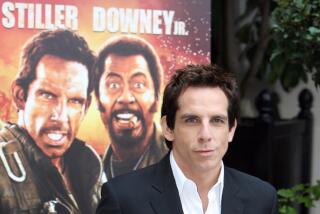Doublespeak: A Weapon Aimed at the Language
- Share via
Doublespeak is not language. It is anti-language. The purpose of language is to transfer a truth from one mind to another; the purpose of doublespeak is to transfer a falsehood disguised as a truth.
In “Doublespeak” (Harper & Row), William Lutz undertakes to define, analyze and document the term, observing at the outset that it has nothing to do with bad grammar or syntax.
“It is instead a very conscious use of language as a weapon or tool by those in power to achieve their ends at our expense. While some doublespeak is funny, much of it is frightening.”
Lutz says there are four kinds of doublespeak. The first is the simple euphemism, in which a word is used to soften a cruel reality. This use may be benign, as when we say “passed on” or “sleeping with.” The second is jargon, which is useful within a trade or profession, but which may be used to keep outsiders out. The third is gobbledygook, the use of big words and strings of nouns so beloved by bureaucracy. The fourth is inflated language designed to make the ordinary seem extraordinary.
A particularly dangerous form is that which makes contrary ideas seem compatible. For example, then-Secretary of State Alexander Haig’s assurance that a continued arms buildup was “absolutely essential to our hopes for meaningful arms reduction”; and Sen. Orin Hatch’s dictum that “capital punishment is our society’s recognition of the sanctity of human life.”
Educational doublespeak rivals bureaucratic for sheer gobbledygook. Brown University economist Herschel I. Grossman had this to say about family love: “An altruistic utility function promotes intertemporal efficiency. However, altruism creates an externality that implies that satisfying the conditions for efficiency does not insure intertemporal optimality.”
Most of us are safely removed from that rarefied form of the disease. But doublespeak surrounds, engulfs, pervades us in advertising. Lutz points out that such words as sugarless, light, enriched, fortified, natural and lean often mean nothing, or much less than they imply.
Lutz notes the prolixity of what he calls “weasel words” in advertising. These are words that seem to make a claim of superiority, but actually make no claim at all. Among them are better (better than what?); helps (as in helps fight tooth decay); virtually (which really means not quite, or not by a long shot); new and improved (since when and how much?); acts fast (acts to do what?).
Then there are the unfinished words. For example, up to . Ads say “up to 50% off.” How much of the merchandise is 50% off? How much is 20% off? How much is not reduced at all? How much has been lowered from an inflated price?
We are told that a “new” painkiller “contains twice as much of the pain reliever doctors recommend most.” What pain reliever? Twice as much as what? More, faster, better . More, faster and better than what?
Did you know that you can claim your toothpaste is “best,” but not “better”? That’s because all toothpastes are equal. Each is the best. Therefore, if you say yours is “best,” you’re OK. But if you say it is “better,” you have to prove it to the federal watchdogs.
Advertising is full of oxymorons. Lutz cites “real counterfeit diamonds,” “genuine imitation leather” and “virgin vinyl.” Also, the redundancy “free gift” is ubiquitous.
Job titles have long since succumbed to doublespeak. Janitors are custodians. Garbage collectors are sanitation engineers. Some are funny: Bouncers are now called doormen, or entertainment coordinators. Watchmen are called night entry supervisors. Repairmen are service technicians or field service representatives. Secretaries are executive assistants.
I am not much disturbed by this harmless attempt to dignify one’s occupation. Also, it can work both ways. I suspect some chief executive officers ought to be called office boys. But there is in this practice a loss of good old English words that were blunt and eloquent and meant what they said.
Lutz warns that nuclear doublespeak can mean “the end of our world.” The language of the nuclear standoff is almost pure doublespeak. Euphemisms abound. The bomb that devastated Hiroshima was called “Little Boy.” The one that devastated Nagasaki was “Fat Man.” Nuclear weapons accidents are called “broken arrows.” We hear of “escalation dominance,” “preemptive strikes,” “sub-holocaust engagements” and “surgically clean counterforce strikes,” and the neutron bomb is a “radiation enhancement device.”
We’ve come a long way from “See Dick run.”
More to Read
Sign up for our Book Club newsletter
Get the latest news, events and more from the Los Angeles Times Book Club, and help us get L.A. reading and talking.
You may occasionally receive promotional content from the Los Angeles Times.










